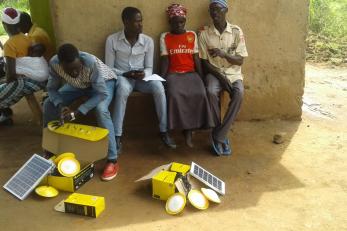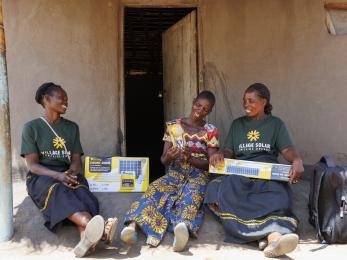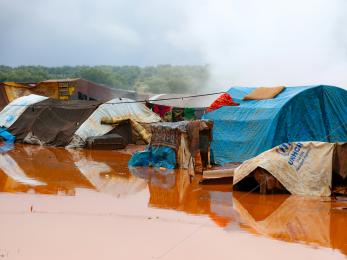Paying for Darkness: Strengthening Solar Markets for Refugees in Uganda

In Uganda, where 89% of 1.4 million refugees have unmet energy needs, bridging the energy access gap would transform lives and entire communities. This research looks beyond traditional humanitarian approaches, like in-kind distributions from aid agencies, which are failing to satisfy needs given the scale of need and scarcity of aid resources. We find that Ugandan refugees are spending portions of their scarce incomes on products like battery-powered flashlights. These products are widely available, but are poor quality and short-lasting — leaving refugee consumers living in darkness despite their investments.
This research considers Pay-as-you-go (PAYGo) solar energy markets as a mechanism to improve energy access for refugees. PAYGo makes solar systems accessible to consumers who otherwise could not afford a large upfront payment, by distributing purchasing costs over time. Uganda has created one of the most successful markets for PAYGo solar energy. Yet, despite a flourishing national market, this research found a near-total absence of PAYGo products and services within West Nile refugee settlements, where use of solar energy is limited to larger business owners and merchants.
This research explores why PAYGo has not yet reached refugee markets and whether targeted interventions could address existing market barriers and improve choices for refugee energy consumers. It explores local consumer, merchant and market actor attitudes towards PAYGo in refugee settlements, and maps current market access. Mercy Corps teams will be using the recommendations in this research to partner with solar companies, and sustainably expand refugee access to better energy solutions in Uganda. This research was made possibly by the Mastercard Center for Inclusive Growth.


